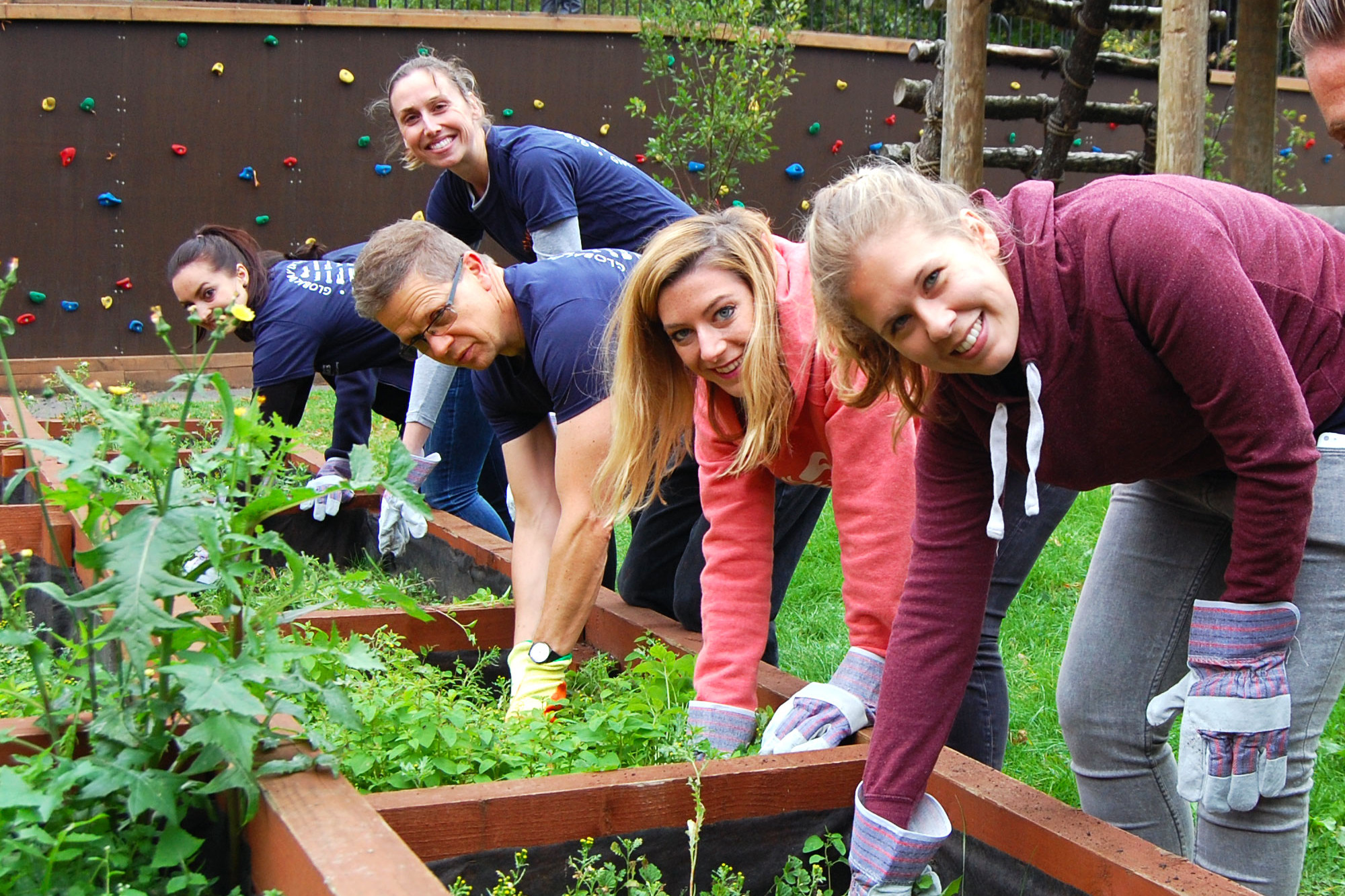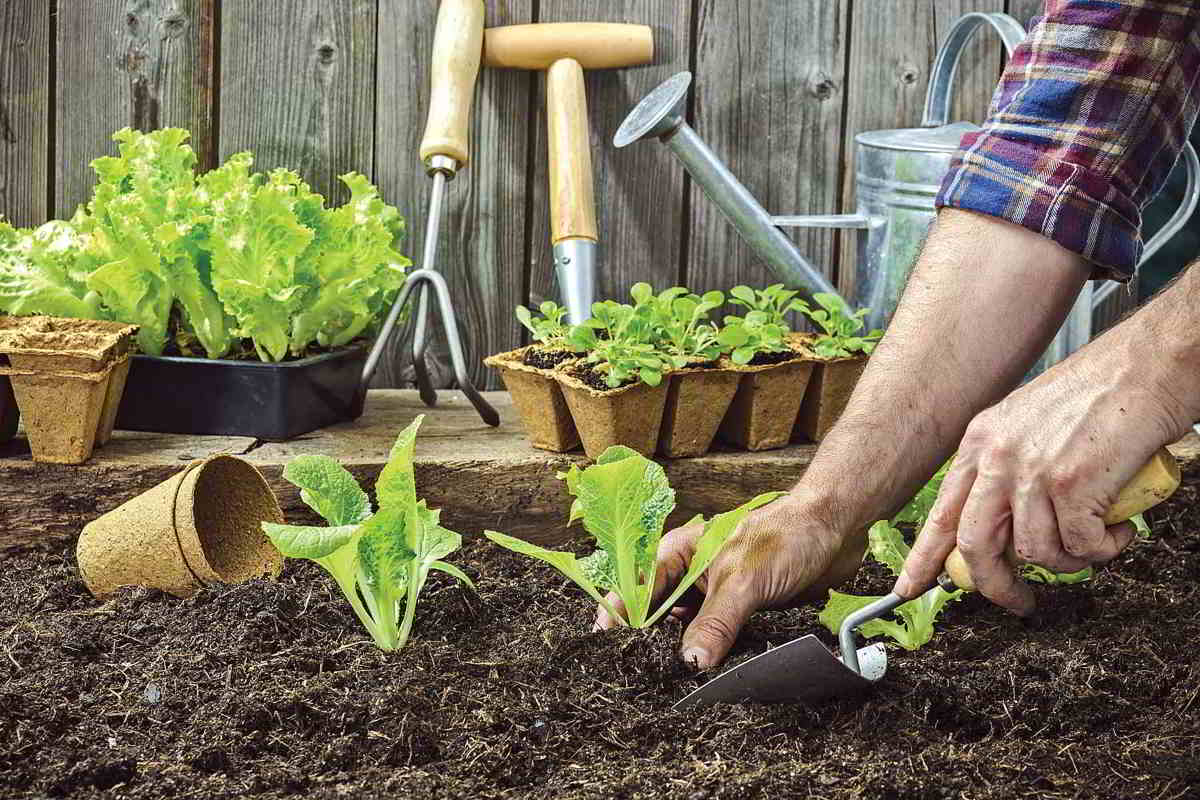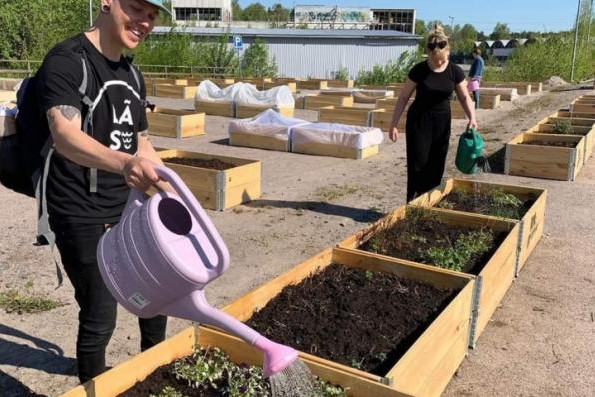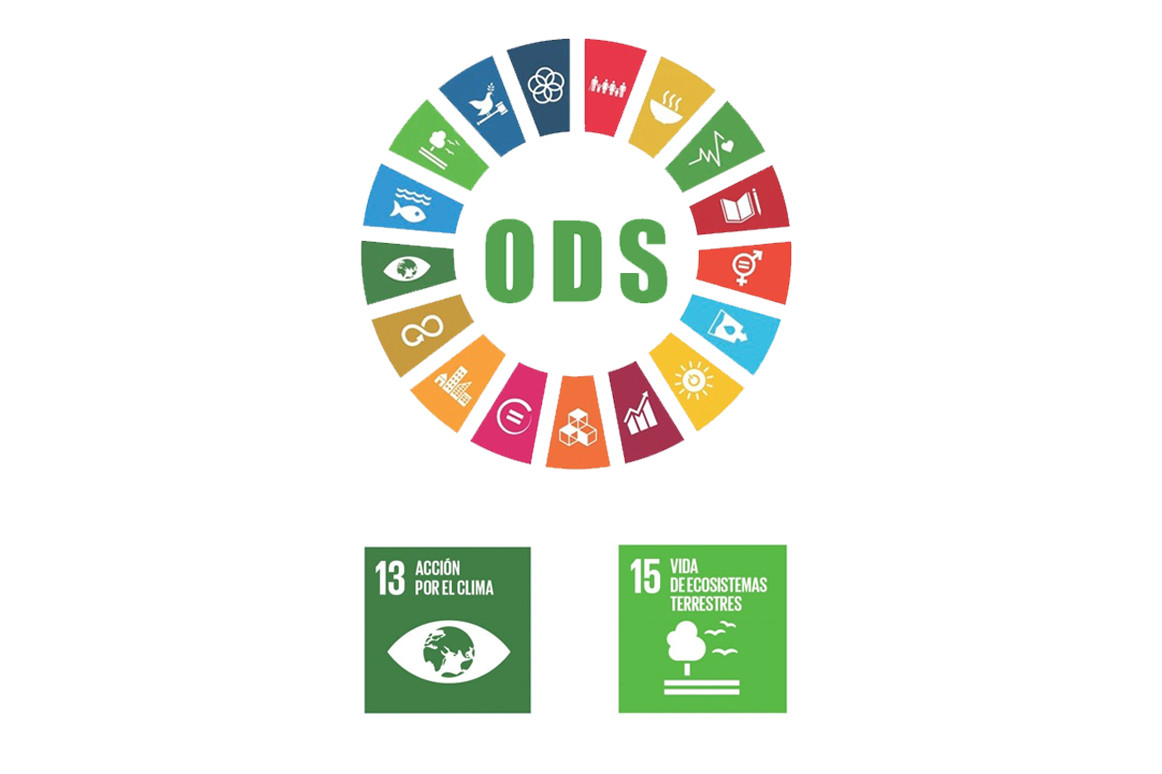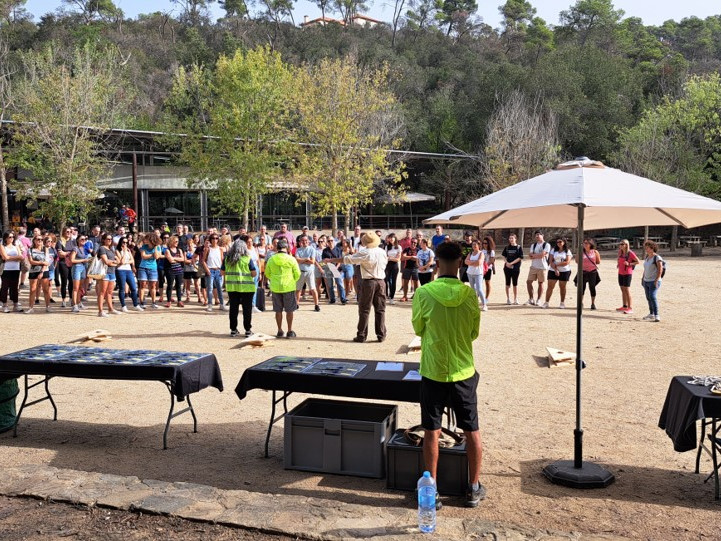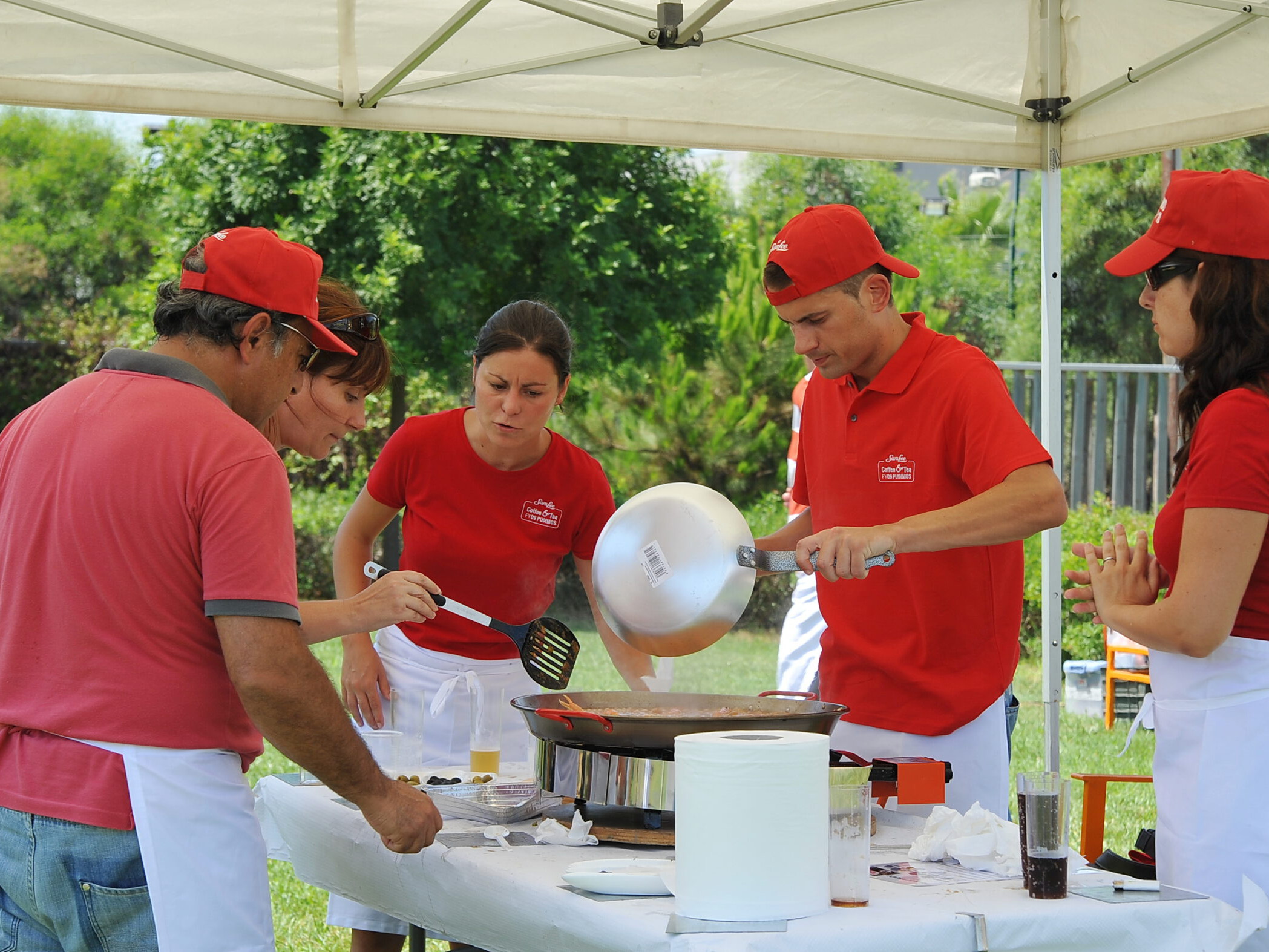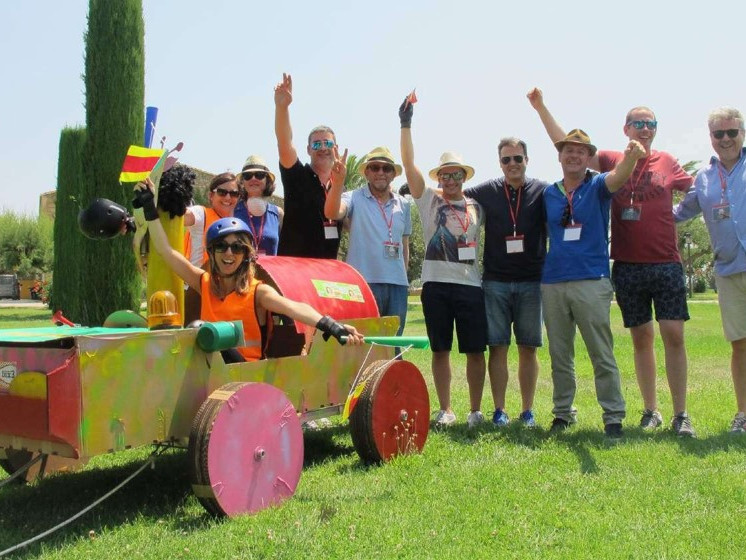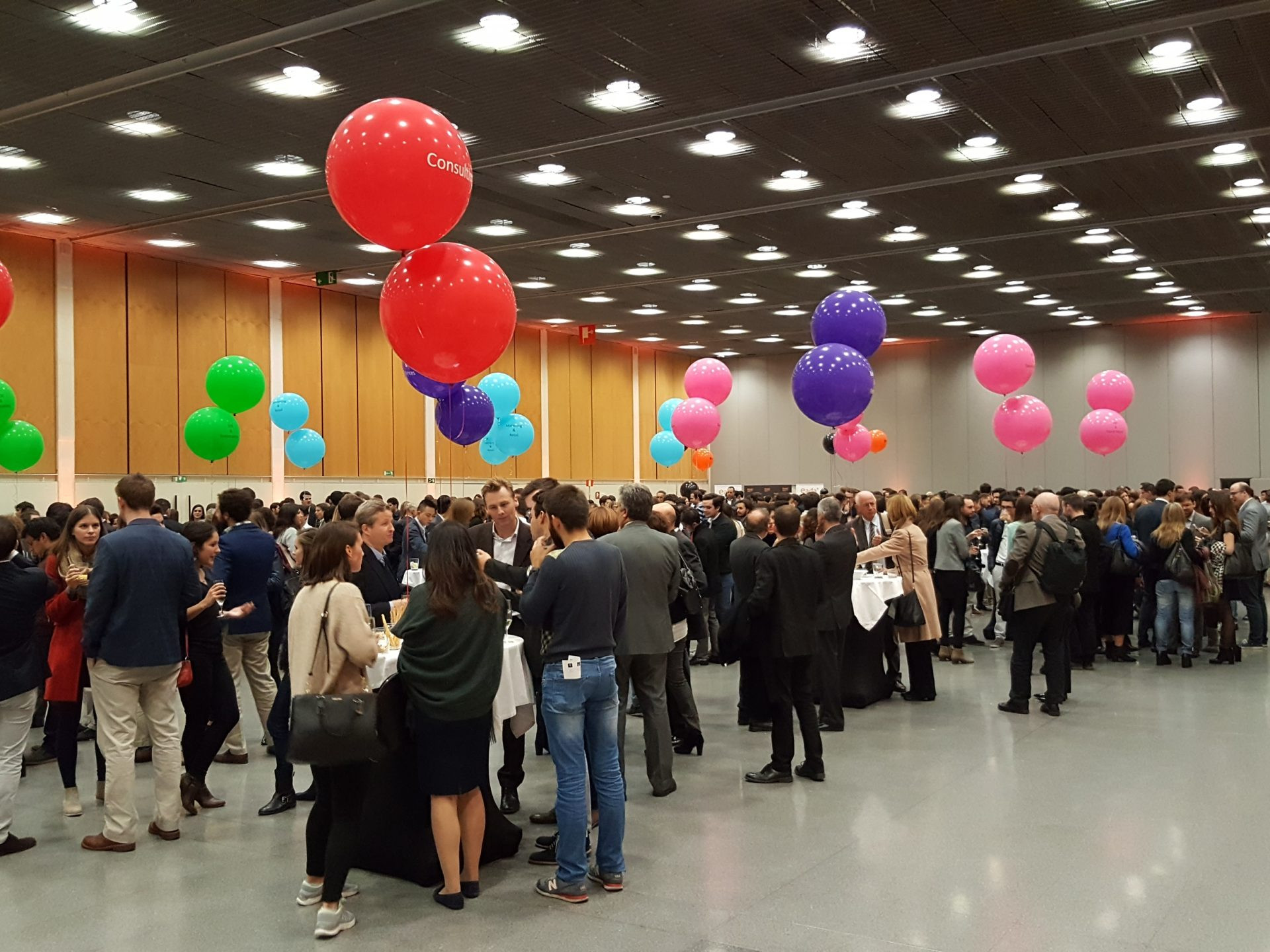Acercamos el mundo del campo a la ciudad
Una actividad ecológica en la que se explica qué es un huerto urbano y orgánico y se enseña a los participantes los beneficios de tener un huerto y cómo construirlo en su propia casa.
Beneficios
- Organización de tareas
- Gestión del tiempo
- Trabajo en equipo
- Cohesión de grupo
- Mayor implicación y compromiso
- Mejora la comunicación
Características
- Teambuilding / RSC
- Formato: presencial
- Nº participantes: 20 – 500
- Tiempo de juego: 150’ (Briefing, juego y cierre)
- Idiomas: Castellano e Inglés
Trabajo en equipo
Refuerza el trabajo en equipo con una actividad artística y altruista
Compromiso social
Demuestra tu empatía y sensibilidad con los problemas ambientales
Gestión del tiempo
Preparación de la parcela y plantación de nuevos cultivos en un tiempo limitado
Comunicación
Mejora la comunicación entre compañeros a través de una actividad dinámica
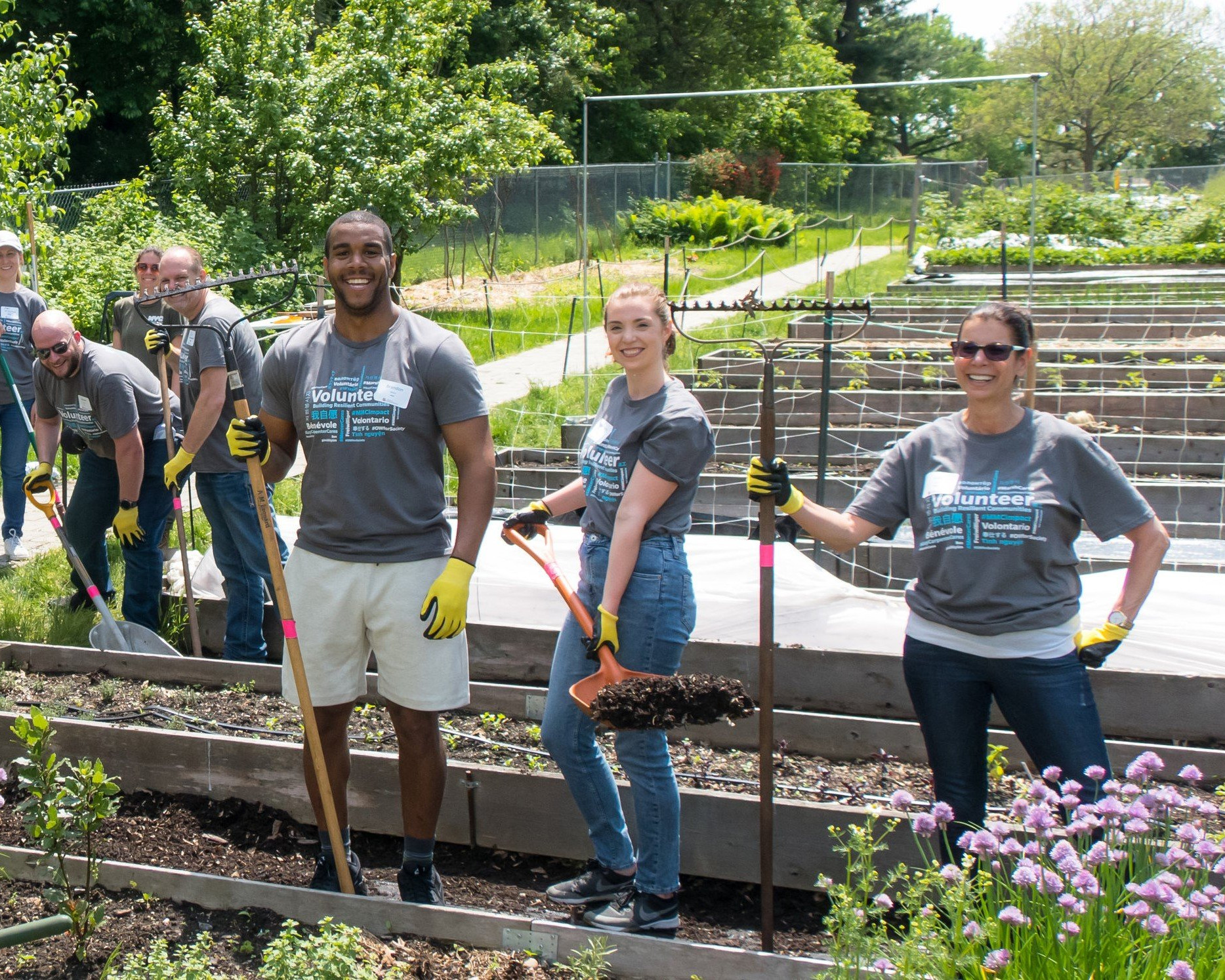
Una gran oportunidad para aportar nuestro granito de arena por el medio ambiente
Los participantes se dividen en equipos para crear un huerto urbano desde cero, evitando derrames de tierra, pintando el área visible, colocando las plantas… y todo ello con el objetivo final de donarlos a un centro social de la ciudad.
No importa el espacio del que se disponga, la experiencia o el tipo de cultivo que se quiera sembrar, sólo se necesita un poco de agua, semillas, sustrato y mucho trabajo en equipo.
Una actividad ecológica que te acercará a la naturaleza de forma dinámica, divertida y llena de aprendizaje. ¡Una experiencia para ser más sostenibles y compartir con nuestro equipo!
Más información de la experiencia
Un experto en la materia hace una introducción a todo el grupo explicando en qué va a consistir la actividad. Luego, los participantes se dividen en equipos para crear su huerto urbano y se realiza una parte práctica y una teórica. En la práctica se trata: la preparación del sustrato de siembra, la preparación de semilleros, la reproducción de esquejes, la reproducción por rizomas y el uso de remedios naturales. En la parte teórica se trata el beneficio de tener un huerto urbano ecológico en casa, los materiales necesarios y los remedios naturales para el jardín. Finalmente, los huertos son donados a un centro social urbano.
Para garantizar el buen desarrollo del taller, se proporcionará a los participantes los siguientes materiales: dosier de apoyo con los temas del curso, contenedores sostenibles para semilleros, sustrato sostenible para semilleros y semillas ecológicas.
Son espacios al aire libre o de interior destinados al cultivo de verduras, hortalizas, frutas, legumbres, plantas aromáticas o hierbas medicinales a escala doméstica. Los huertos urbanos contribuyen a la recuperación, mejora o aprovechamiento del suelo urbano, posibilitando la regeneración de espacios degradados, evitando la colonización espontánea e ilegal de espacios residuales o abandonados. La agricultura urbana proporciona alimentos frescos, genera empleo, recicla residuos urbanos, crea cinturones verdes y fortalece la resiliencia de las ciudades frente al cambio climático.

